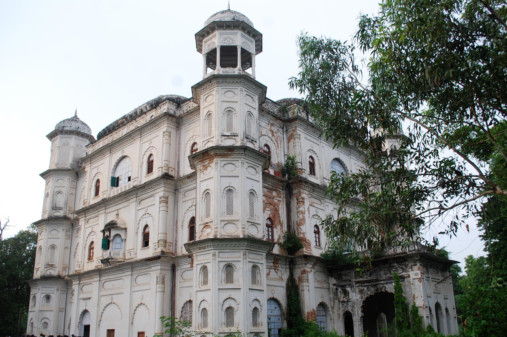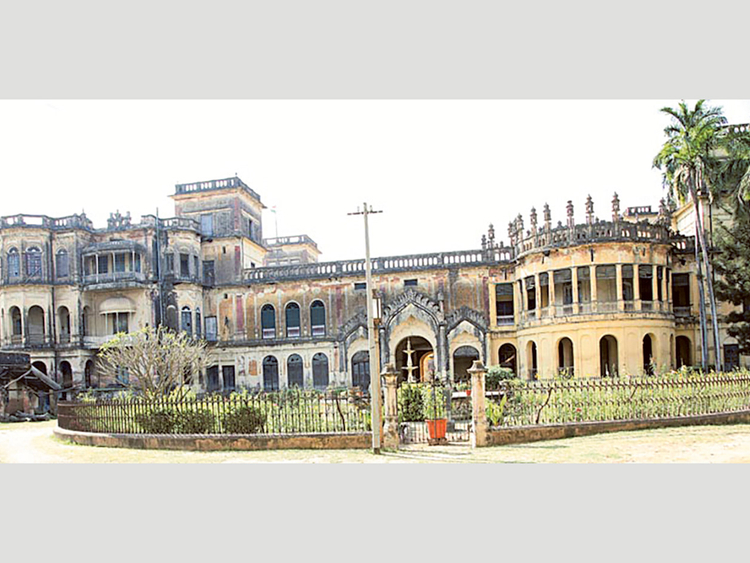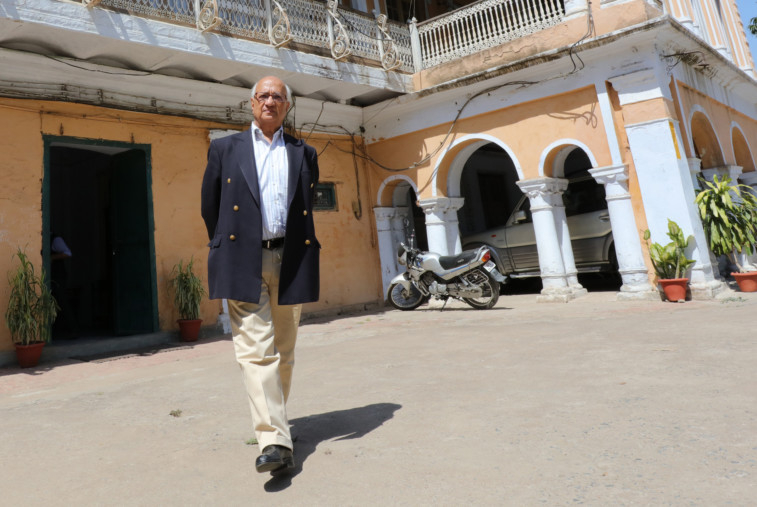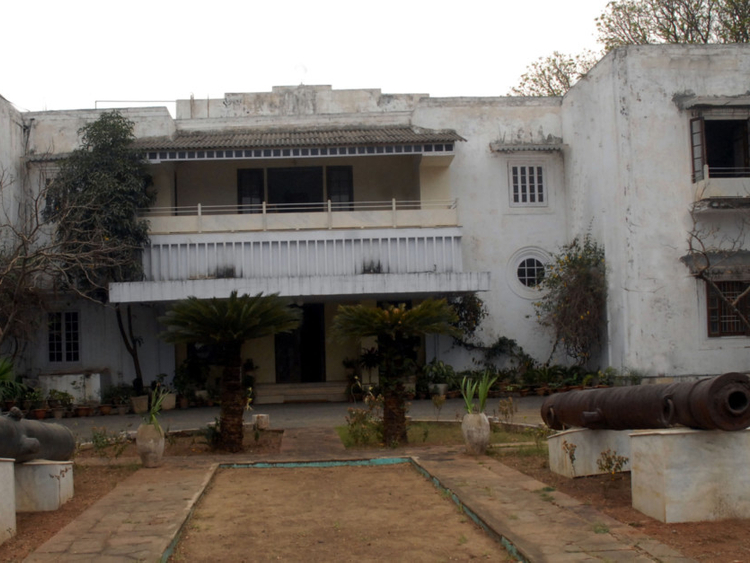
In a single stroke, a new law being adopted by the government of India’s Prime Minister Narendra Modi has labelled thousands of Muslims as “enemies” of the state. These Muslims are owners of ancestral properties that once belonged to people who migrated to Pakistan. Nearly 70 years after the Partition in 1947, all assets once owned by people who migrated to Pakistan may be acquired by the Indian government, a possibility that may uproot thousands of Indian Muslims from homes their families have held for generations.
The new law, Enemy Property (Amendment & Validation) Bill 2016, which amends the Enemy Property law of 1968, is pending in Parliament for approval. Once adopted, it will give immense powers to the government to acquire and sell thousands of such properties — believed to be worth billions of dollars — with retrospective effect. In other words, all houses, palaces and land left by wealthy Muslims who migrated to Pakistan in 1947 or later will be seized by the state even if their descendants are Indian citizens.
While amending the law of 1968, the government changed the definition of “enemy”. It says: The definition of “enemy” and “enemy subject” shall include the legal heir and successor of an enemy, whether a citizen of India or a citizen of a country which is not an enemy, and also include the succeeding firm of an enemy firm in the definition of “enemy firm” irrespective of the nationality of its members or partners.
This change in the definition will affect a large number of families living in 19 states.
One such family is of the Raja of Mahmudabad who owns a 600-year-old fort, several mansions and commercial assets in northern states of Uttar Pradesh and Uttarakhand. The Raja became a Pakistan national in 1957 but his wife Rani Kaniz Abid and children remained in India. Since 1997, his son Mohammad Amir Mohammad Khan has mounted and won several legal battles against the government’s acquisition of his assets, a move many believe was unlawful and against the Constitution, which protects the rights of every citizen.
During a debate in Parliament on the issue, Congress MP Shashi Tharoor said: “This will adversely affect the rights of thousands of Indian citizens and, principally, let us call a spade a spade, of the Muslim community ... It is essentially properties of those who went to Pakistan, and that tends to be from only one community, and this is, to my mind, not only borderline and unconstitutional — the court should determine that — but also against the basic principles of natural justice.”
“The new law is against the letter and spirit of the Constitution and we have challenged it in court,” Mohammad Amir Mohammad Khan, who is also known as Raja Mahmudabad, told Weekend Review in an interview at Mahmudabad House in Lucknow.
Since 1973, Khan has unsuccessfully petitioned various governments, including that of Congress, a party under whose banner he joined and fought and won elections.
Why then did the Congress governments continue to illegally keep his properties?
“It has nothing to do with this party or that ... parties are not monolithic entities, they consist of people ... it is a systemic thing, the manner in which the executive operates has much to do with it. One malaise that afflicts the executive and the political system is corruption, both monetary and moral. What I mean by moral corruption is prejudice, bigotry and hatred in the decision of any matter is corruption. If I look at your colour, your religion, your affiliations, I should not take that into account even if you belonged to an institution that is opposed to my systems of beliefs,” Khan said.
Some say the role of Khan’s father Mohammad Amir Ahmad Khan in the Pakistan movement and his close association with the country’s founder, Mohammad Ali Jinnah, influenced Indian government’s actions after independence. Also, for a brief period, the Mahmudabad estate was run by a trust headed by Jinnah.
“After the death of my grandfather in 1931, till 1936, Mahmudabad estate was run by a committee of trustees of which Jinnah was the chairman. Initially, my grandfather wanted Motilal Nehru [father of India’s first Prime Minister Jawaharlal Nehru] to be the chairman for the first year and Jinnah the following year. Unfortunately, Motilal died six months before my grandfather did ... and my grandfather could not even make an alternative arrangement. The estate was run by the trustees, otherwise the British could have taken away.”
In 1947, Khan was seven years old when he went to Iraq with his parents. In 1953, his wife and children came to India while the Raja moved to London. “My father was totally traumatised by the riots before the Partition. He later told me that he blamed his naiveté for not being able to anticipate the horrific occurrences. He said, after all, the Congress and the Muslim League were all against the British. Jinnah had a great influence on my father. He was much older and was his guardian. He persuaded my father that the Partition was akin to two brothers separating from a joint family and building a wall. Jinnah may have anticipated the horrific events, the acrimony, but my father didn’t. He asked Jinnah, ‘What was to be done for Muslims who don’t wish to go to Pakistan?’ My father was taken aback by Jinnah’s answer, which was cold and legalistic, ‘Amir, they will have to fend for themselves’,” Khan told journalist Ajaz Ashraf in an interview to online portal Scroll earlier.
After returning to India from Iraq, Khan, who knew only Persian, Arabic and Urdu, was schooled in La Martiniere in Lucknow and later studied in Aldenham School in England before studying mathematics in Cambridge. After graduation, he studied theoretical and space physics at Imperial College in London.
His father, meanwhile, left Iraq in 1957 and decided to stay in Karachi. “In 1957, my father surrendered his Indian passport to C.C. Desai, the Indian consul general in Karachi. Desai then informed Nehru, who asked him not to cancel it,” Khan told Weekend Review.
Later, Nehru tried to persuade the Raja but he declined to give up Pakistani citizenship.
Since the death of his father in 1973, Khan has pleaded with prime ministers, several ministers and officials to have his properties released. “This struggle [for the properties] started in the lifetime of my father Mohammad Amir Ahmad Khan. My mother and my father’s only brother were both Indian citizens and had powers to run the estate on behalf of my father who was always travelling. In his lifetime, when the estate became enemy property, the two represented to the governments of prime ministers Lal Bahadur Shastri and Indira Gandhi to release the properties because my father was neither interested nor benefited from them. My mother, my uncle and I — all of us Indian citizens — benefited from this property and we contended that this estate should not be enemy property. That’s when our struggles started and gained momentum — when my father died in 1973,” he said.
The Indian government first introduced the term “enemy property” during the war with China in 1962 when properties held by Chinese nationals in India were seized to ensure that proceeds from such assets were not used against India. When the war with Pakistan broke out in 1965, the concept was extended to Pakistan and soon after, the Mahmudabad estate was taken over by the government.
“In September 1965, the properties were taken over under the Defence of India rules 1962 in order to continue the management and preservation of the property by the custodian. But the rules were not enough and they had to be enshrined in an Act. So the Defence Rules were put into the 1968 Act which said the custodian would be responsible for the maintenance of the enemy and his family. So, my mother and I were given a maintenance allowance and we accepted it on a matter of principle, it was an acknowledgement of our rights.”
“After my father passed away, I began to petition the governments to release the properties. I also petitioned [Prime Minister] Morarji Desai who called me and asked me, ‘How can this happen with your mother and you being Indian nationals?’”
“He referred my case to a ministry ... but his government fell and then Indira Gandhi became the prime minister. I met her and she assured that she would look into the matter closely.” But the matter lingered. “In response to my petitions, all I got were one-liners from the government — that my matter is being looked into,” Khan, now 72, said.
After pleading with the government from 1973 to 1997, Khan was told only 25 per cent of his assets would be released to the Raja’s successors and after a prolonged battle, he was declared the legal heir by the court. Fed up with the delay, Khan then filed a writ petition in the Bombay High Court in 1997.
“Barely a fortnight after the 9/11 attack, a judgment was given in September 2001 ... such was the obsession of the government counsel that he referred to the attacks on the twin towers and irrelevant things such as terrorism during the case hearings. But the court took a legal view and gave a judgment, clearly ordering the government to restore the property to me. The Bombay High Court said I was the owner of the property since 1973.”
In January 2002, the government, which was the custodian of the property, challenged the order through a special leave petition in the Supreme Court. “In October 2005, we got an order ... and the bench, while noting that Indian government had acknowledged me as an Indian citizen, said it was incumbent upon the government to help citizens of India and not to harass them.
“By the following year, we got physical and juridical possession of all the properties, except a few in Lucknow’s Hazratganj due to tenancy issues. Subsequently, we took bank loans and put our money to repair and restore these buildings,” he said.
In July 2010, however, the government promulgated an ordinance to repossess the properties. “The reason government gave was laughable — it said a spate of litigations were filed following the 2005 Bombay High Court order and therefore the custodian is unable to do its job,” he said, “retrospectively putting a lid on the judicial process.”
This was the most extraordinary reason and the custodian wanted to avoid doing its job of fighting the litigants so the government bypassed the judiciary completely, he said.
Besides the Mahmudabad family, another high-profile case is that of Bollywood star Saif Ali Khan. In February 2015, his ancestral assets in Bhopal were declared “enemy property” by the government, which said that erstwhile Nawab Hamidullah Khan’s eldest daughter Abida Sultan had become a Pakistan national in 1950. Abida was the mother of diplomat and chairman of Pakistan Cricket Board Shahryar Khan. The family argues that Abida had relinquished her rights to the property to her sister Sajida Khan, grandmother of Saif Ali Khan, who is married to film star Kareena Kapoor. A court has stayed the takeover of the Bhopal properties.
Today, after fighting for four decades, Khan’s faith in India remains unflinching and is getting ready for another round of legal battle.
“One great thing about India is that in spite of this, we still are a nation that can hold its head high amongst the committee of nations and say that we do have problems but we are still functioning as a satisfactory democracy. We elect people and throw them out and then issues about minorities are raised and discussed and the freedoms we do have are a credit to us,” he added.
What is enemy property?
United Kingdom was the first country to use the term “enemy property” to classify commercial holdings owned by Germans during the First World War. It was done to prevent earnings from these buildings going to Germany. The assets were frozen and money went into the account of a custodian. The United States and Japan took similar steps during the Second World War.
In India and Pakistan, the concept was adopted after Partition. First enacted in 1947, it was called the Evacuee Property laws and later modified to Enemy Property laws as the two countries launched the mammoth task of rehabilitating migrants.
To compensate and rehabilitate the refugees in India, the law was applied to use properties left behind by those departing to their adoptive lands, a formula widely criticised by many. “The Evacuee Property legislations, theoretically at least, allowed a migrant’s family to reclaim in the country they settled in the value of its forsaken property,” journalist Ajaz Ashraf wrote in Scroll.
What has happened since then
After Independence, the Indian government declared a large number of assets owned by Muslims as “enemy property” and acquired them, converting many into government offices and residences for government officials. These acquisitions were successfully contested by the descendants of the owners. After a string of legal defeats in courts which ordered return of the seized assets to the heirs in 2005 in one case, the Congress government introduced an ordinance in 2010, in effective nullifying court orders. However, that ordinance did not reach the Parliament and was allowed to lapse. In January, the Narendra Modi government promulgated another ordinance — Enemy Property (Amendment & Validation) Bill 2016, amending the Enemy Property law of 1968 and nullifying all previous court orders. In a nutshell, this law has made owners of such properties “enemies” of the state. This ordinance has been cleared by Parliament’s elected house Lok Sabha and is pending in the upper house of Rajya Sabha.
How many properties affected
Although the Raja of Mahmudabad has been leading the fight against enemy property laws, thousands of families across India will be affected by the arbitrary takeover. While it is hard to get official numbers, some estimates suggest that more than 15,000 properties, including those owned by Raja Mahmudabad, Saif Ali Khan and his sisters, may be acquired. These properties are mostly located in Uttar Pradesh, Madhya Pradesh, Telangana and West Bengal, states with the highest concentration of wealthy Muslims before Independence.












